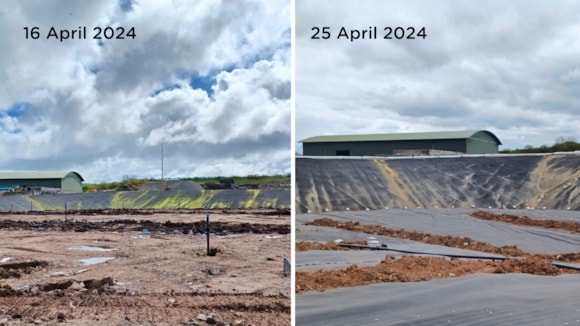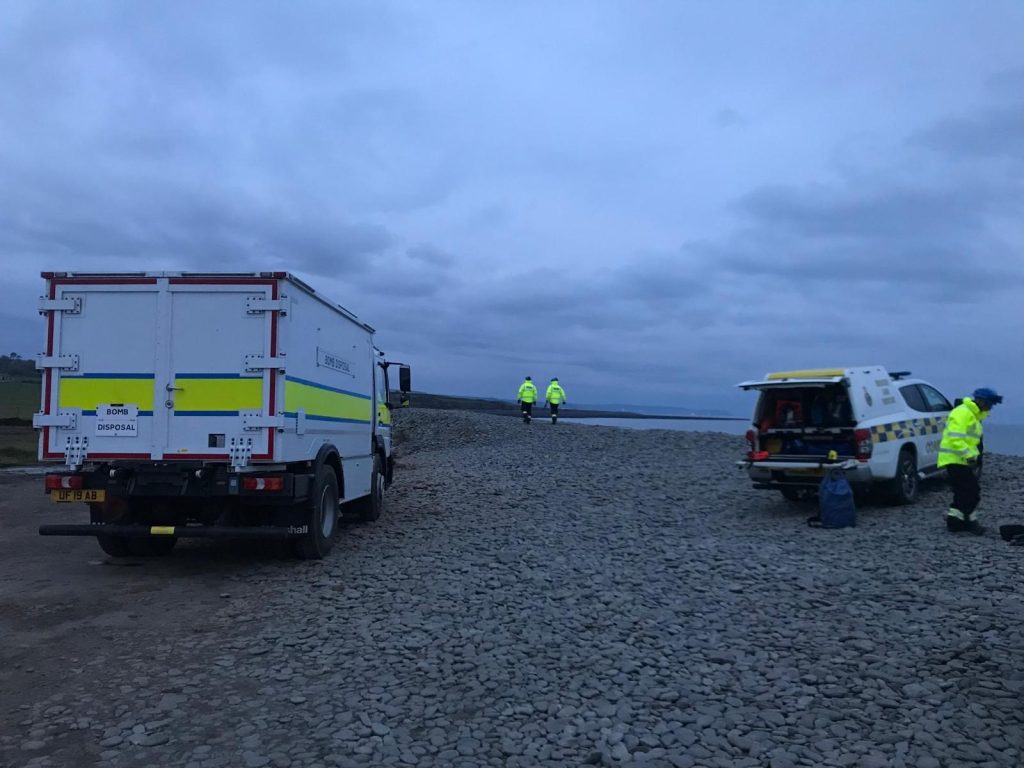Community
Fabulous Valentine’s Day facts
 WITH THE MOST romantic day of the year approaching, we think its time to learn some facts to impress that special someone on the 14th of February.
WITH THE MOST romantic day of the year approaching, we think its time to learn some facts to impress that special someone on the 14th of February.
• Teachers receive the most valentines, followed by kids, mothers, wives and sweethearts.
• Over 50 percent of all Valentine’s Day cards are purchased in the six days prior to the holiday.
• The oldest surviving valentine dates from 1415. It is a poem written by Charles, Duke of Orleans to his wife. At the time, the duke was being held in the Tower of London following his capture at the Battle of Agincourt.
• One billion valentines are sent each year worldwide, making it the second largest card-sending holiday of the year behind Christmas. Women purchase approximately 85 percent of all valentines.
• Hallmark produced its first valentine in 1913.
• Today, Hallmark employs an 80-person research staff to analyze the sales pattern of previous valentines. That analysis, combined with more than 100,000 annual customer interviews, focus groups and in-store observations, will help create roughly 2,000 cards in Hallmark’s core Valentine’s Day line.
• While Hallmark offers thousands of different cards for Valentine’s Day, one card was the top choice of customers in New York, Los Angeles, and virtually every other city in the country in 2006.
• In Japan, women are expected to give chocolate and other gifts to men on Valentine’s Day. This tradition was started as a marketing campaign by Japanese chocolate companies. Men are not off the hook, unfortunately. They are expected to return the favor on March 14th, commonly known as White Day.
• BBC reports that Shiv Sena, a nationalist political party in India, has spoken out against Valentine’s day, calling it “nothing but a Western onslaught on India’s culture to attract youth for commercial purposes.”
• The Ivory Coast is the world’s largest producer of cocoa, the main ingredient in chocolate. In 2001, the U.S. State Department reported child slavery on many cocoa farms in the Ivory Coast. A 2002 report from the International Institute of Tropical Agriculture estimated there were 284,000 children working on cocoa farms in hazardous conditions.
• The roots of St. Valentine’s Day can be traced back to the Roman fertility festival of Lupercalia. On Lupercalia, a young man would draw the name of a young woman in a lottery and would then keep the woman as a sexual companion for the year.
• In the Middle Ages, young men and women drew names from a bowl to see who their valentines would be. They would wear these names on their sleeves for one week. Today, to wear your heart on your sleeve means being transparent with your affections.
• Three different Saint Valentines have been mentioned by the martyrologies of the Roman Catholic Church.
• The Catholic Church struck St. Valentine’s Day from its official calendar in 1969.
• The phrase “Sweets for the sweet” is a line from Shakespeare’s Hamlet, Act 5, Scene 1.
• Famous Valentine’s Day weddings: The Captain and Tennille, Elton John and Renate Blauel, Meg Ryan and Dennis Quaid, Jerry Garcia and Deborah Koons, and Pamela Anderson and Tommy Lee.
Community
First deadlines met following enforcement action at landfill site

THE first set of deadlines for the completion of actions to tackle the ongoing odour issues at Withyhedge Landfill in Pembrokeshire have been met, one week on following the issuing of further enforcement action by Natural Resources Wales (NRW).
NRW issued site operator Resources Management UK Ltd (RML) with a further Regulation 36 Enforcement Notice on Thursday 18 April.
This outlined a series of actions to be completed by specified deadlines to address the ongoing odour and landfill gas emission issues at the site.
During the latest site inspection which took place yesterday (Thursday 25 April), NRW was able to confirm that three actions have been completed – two ahead of the imposed deadlines.
The operator has installed 24 pin wells, which have been driven into the waste in the lower section of the cell identified as causing the odour issues (Cell 8). These have also been connected to the landfill gas extraction system.
Capping material has been placed over the same area of the cell and welded to the basal liner to encapsulate gas in this area, allowing for extraction by the pin wells and four horizontal gas wells, which were previously installed.
While progress is being made, NRW officers detected strong landfill gas odours during an offsite assessment on Wednesday (24 April) in Poyston Cross and Crundale. Weather conditions this week appear to have led to a wider spread of landfill gas to surrounding areas, not solely linked to wind direction.
NRW odour assessments follow a set route around the landfill, with designated survey spots, identified to enable consistency of assessment and reporting. This is essential to ensure the regulatory and enforcement responses where there is offsite odour attributed to the landfill is robust.
The remaining Regulation 36 Notice actions will require significant effort by RML to ensure they are completed on time and NRW continues to closely monitor progress.
Clare Pillman, Chief Executive of NRW, met with representatives from NRW’s South West Industry Regulation Team and Pembrokeshire County Council during a visit to Pembrokeshire on Thursday 25 April.
Clare Pillman, Chief Executive, Natural Resources Wales, said: “While visiting the area surrounding Withyhedge Landfill with our regulatory team and partners from Pembrokeshire County Council this week, I was able to see and hear for myself just what people living and working in these communities have had to endure as a result of the odour issues from the site.
“What they have been experiencing is unacceptable and our officers have been working tirelessly alongside colleagues at Pembrokeshire County Council to ensure the operator gets this under control as quickly as possible. While it was clear that a lot of work has been done on site, there is still more to do to ensure they address all the actions set out in the enforcement notice.
“We want to make sure that happens, and are exploring every option together with Pembrokeshire County Council to ensure the operator works quickly to resolve the issues which are clearly affecting the quality of life of people in these communities.”
Huwel Manley, Head of South West Operations, said: “While we are reassured that action is being carried out by the operators at Withyhedge Landfill with a sense of urgency, we are continuing our regulatory presence on site to ensure the operator’s focus remains on tackling the issues that will address the continuing odour issues being experienced by surrounding communities.
“We will be closely monitoring progress over the coming days and weeks to ensure the operator complies with all the actions set out in Notice by 14 May. If they are not met, we will pursue additional enforcement action where appropriate.”
NRW requests that instances of odour from the landfill continue to be reported via this dedicated form: https://bit.ly/reportasmellwithyhedge or by calling 0300 065 3000.
Please report odours at the time of them being experienced, rather than historically. Reporting odours in a timely manner will help guide the work of partners more effectively, particularly in the further development of air quality monitoring.

Community
Milford Haven’s war memorial is 100 years old today

THE Milford Haven War Memorial, a significant landmark commemorating the fallen heroes of World Wars and subsequent conflicts, marks its 100th anniversary today.
The memorial, which was inaugurated on April 26, 1924 by the Venerable the Archdeacon of St Davids, remains a poignant symbol of sacrifice and hope for peace.
Constructed from 1923 to 1924, the memorial consists of a striking assembly of pink granite and white marble statues that were sculpted in Italy.
Representing the Army, Navy, and Air Force, these life-size statues stand on an unpolished three-step plinth below a main pedestal. A soldier faces west and a sailor east, with an airman atop the central column, surveying the skies.

The names and inscriptions of the fallen are carved into the polished granite shaft, meticulously supervised by surveyor J.P. Morgan with contractor E. Jones of Llanybydder.
Located on Hamolton Terrace with views over the Milford Haven waterway, the memorial is a freestanding structure in an external, roadside setting. It features a serviceman/woman sculpture in marble and Portland stone, set on a concrete base surrounded by railings. Inscribed plaques honour those who served in the First and Second World Wars, the Korean War, and the conflict in Iraq from 2003 to 2009.
The memorial lists the names of 239 men who perished in the First World War on its polished grey granite faces. The Second World War claimed 157 lives from this community, whose names are recorded on bronze plaques around the base. Notably, the memorial also honours one serviceman who fell during the Korean War and another who was killed in Iraq in 2007.
The Milford Haven War Memorial stands not only as a historical monument but also as an enduring reminder of the costs of war and the community’s ongoing commitment to peace.
As the town reflects on a century of remembrance, the hope remains that future generations will continue to cherish and learn from the lessons of the past.

Community
Suspected explosive device found on west Wales beach

NEW QUAY Coastguard Rescue Team were tasked at 03:50 this morning following a report of suspected washed up Ordnance on Llanrhystud beach. Following an assessment by the Army Bomb Disposal Team it was discovered the item was not Ordnance. It was reported with good intent and thankfully there was no risk to the public.
Reporting of ordnance – Always be mindful of objects you may discover on our beaches.
Our shores are filled with history, but remnants from the past can still sometimes wash up on our shores today.
If you find something on the beach that’s an unusual size or shape, especially if it’s rusty, it could be an unexploded ordnance.
What should I do if I find something that looks unusual on the beach?
While it is very rare to find unexploded ordnance on a visit to the beach, bad weather and high tides can expose these objects. It’s important to be cautious, as ordnance comes in all shapes and sizes.
If you do come across something on the beach that you’re unsure of or suspect could be unexploded ordnance, please don’t touch it or move it. Call 999 and ask for the Coastguard – we will take immediate steps with the relevant partner authorities to keep people safe and ensure the item in question is disposed of correctly.

-

 News2 days ago
News2 days agoPolice and air ambulances at ‘serious incident’ at West Wales school
-

 News6 days ago
News6 days ago20mph U-turn: Some roads will return to 30mph following public outcry
-

 Community6 days ago
Community6 days agoMiracle pup finds her forever home after heart-wrenching journey
-

 Crime2 days ago
Crime2 days agoPembrokeshire pensioner accused of 17 sexual offences against children
-

 Crime1 day ago
Crime1 day agoAll three school stabbing victims discharged from hospital, police confirm
-

 Community3 days ago
Community3 days agoCounty Hall to offer space for community banking
-

 Crime4 days ago
Crime4 days agoBrian Davis: Wanted on suspicion of commercial burglary
-

 Education6 days ago
Education6 days agoTarget of 1m Welsh speakers by 2050 is “almost impossible”
























